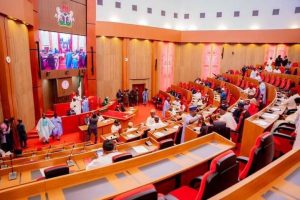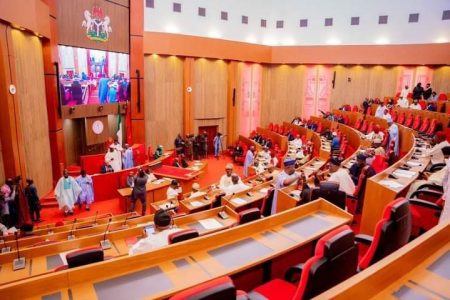Nigeria’s housing crisis is a significant challenge, with a staggering 43 million households residing in substandard housing. This dire situation, revealed by Housing and Urban Development Minister Ahmed Dangiwa, underscores the urgent need for effective and sustainable solutions. The Minister acknowledged past attempts to address the housing deficit but stressed that the results have been far from satisfactory, leaving a vast majority of the population in inadequate living conditions and contributing to the proliferation of slums around urban centers. He emphasized the need for a paradigm shift, moving beyond the failures of the past and embracing a renewed sense of hope and possibility under the current administration.
The Minister highlighted the political neglect the housing sector has suffered since independence, hindering its development and exacerbating the current crisis. He expressed optimism about the potential for change under President Tinubu’s leadership, emphasizing the importance of strong leadership in driving national development. The Minister invoked a “can-do” spirit, signifying a commitment to rewriting the narrative of housing and urban development in Nigeria and establishing a benchmark for future generations. This renewed focus aims to transform the housing landscape and provide decent and affordable housing for all Nigerians.
A key priority outlined by the Minister is increasing the availability of decent and affordable housing, a critical step in addressing the housing deficit. This involves implementing land reforms to streamline land administration processes, thereby unlocking the potential of the real estate sector to contribute to economic growth. The Minister underscored the need to revitalize federal housing institutions like the Federal Housing Authority and the Federal Mortgage Bank of Nigeria, ensuring they effectively fulfill their mandates.
The Minister also emphasized the establishment of a national social housing fund. This fund will play a crucial role in mobilizing and managing concessionary funding to provide decent housing for vulnerable populations, including low-income earners, the underprivileged, and internally displaced persons. This initiative aims to ensure that even the most vulnerable members of society have access to safe and affordable housing. Furthermore, the government plans to establish manufacturing hubs in each of the six geopolitical zones to boost local production of building materials, further facilitating housing development.
To ensure effective coordination and prevent duplication of efforts, a multi-agency project delivery framework will be implemented. This framework will align the focus of all housing institutions, ensuring they work in concert to deliver housing projects efficiently. Additionally, the National Urban Renewal and Slum Upgrade Programme will be expanded to address the challenge of slums and improve living conditions in urban areas. These comprehensive strategies aim to tackle the housing crisis from multiple angles, addressing both immediate needs and laying the groundwork for long-term sustainable solutions.
While acknowledging the progress made with 10,112 housing units currently under construction, the Minister emphasized that this is only a starting point. He stressed that the ministry’s target is not just to build houses but to fundamentally transform the housing landscape. The ministry recognizes the immense scale of the challenge, with a need to build at least 500,000 housing units annually to meet the current demand. The current efforts, while commendable, are just a small step towards achieving this ambitious goal. The ongoing land reform initiative, which has produced a comprehensive blueprint for effective land governance, is another crucial component of the ministry’s strategy. This blueprint outlines strategies and initiatives that the ministry can implement to improve land administration and accessibility across the country. The focus is on making land ownership more readily available, secure, accessible, and transferable at affordable rates. This will not only facilitate housing development but also contribute to broader economic growth.













